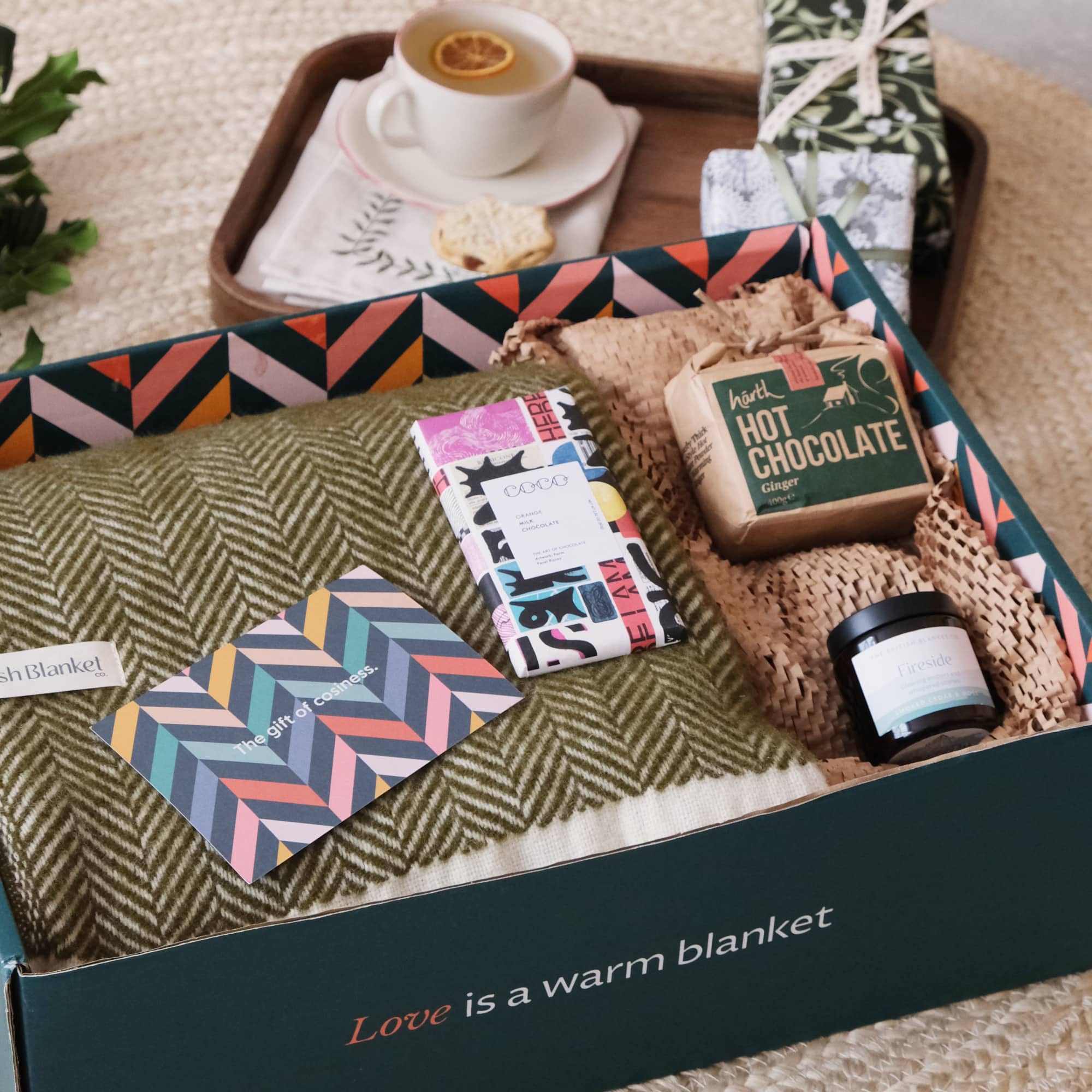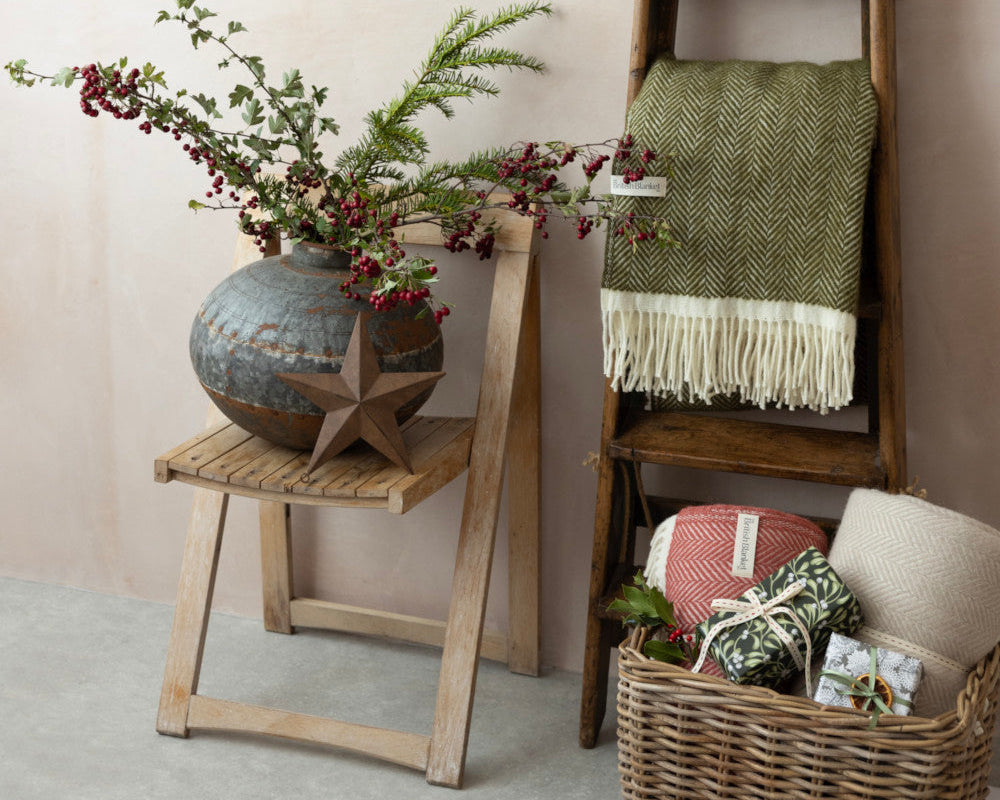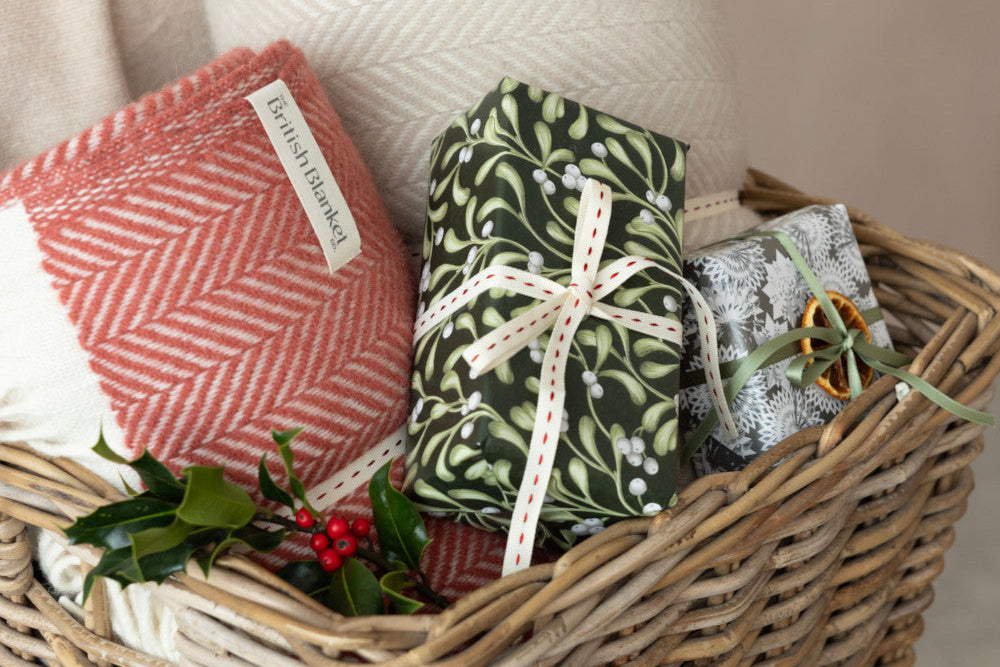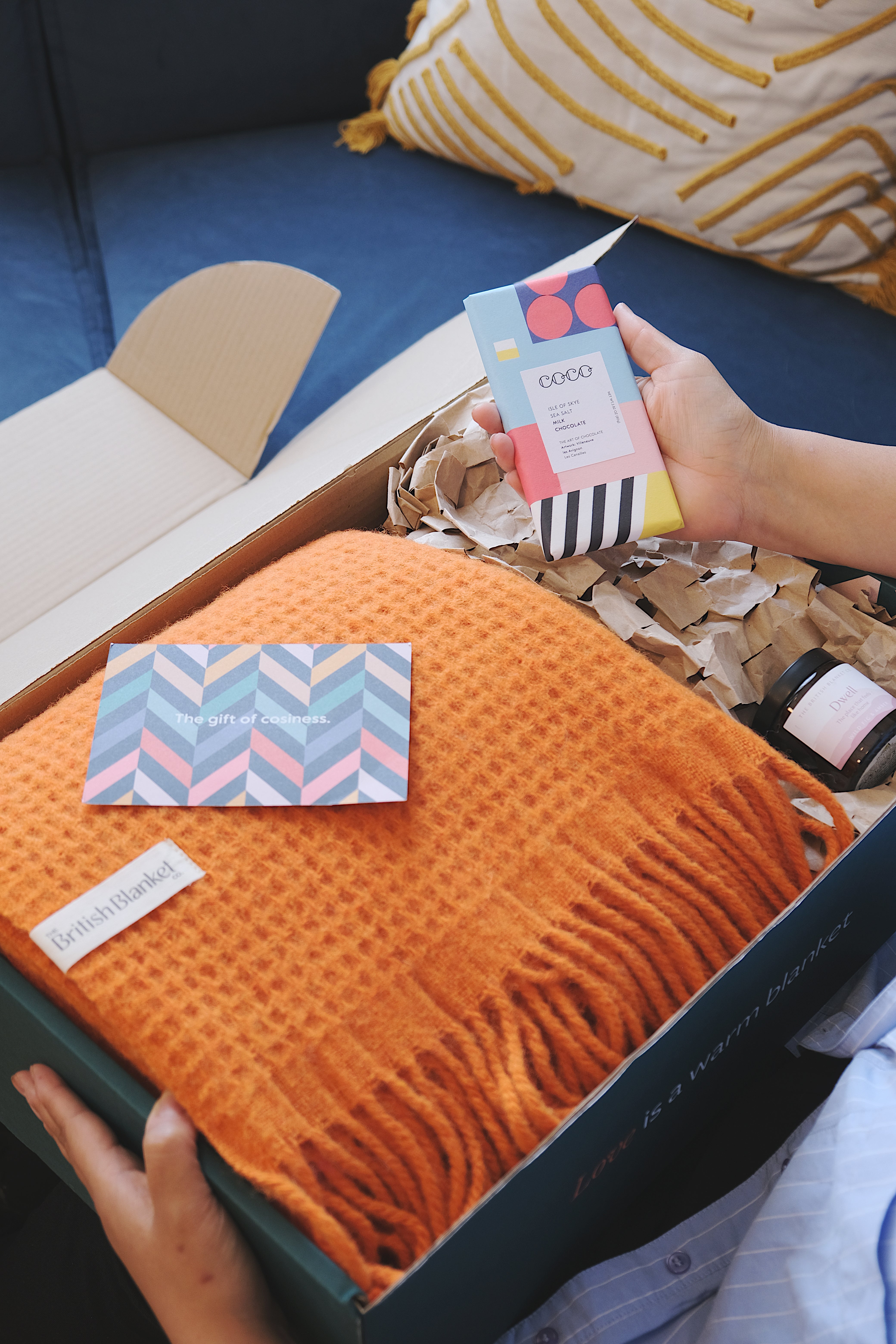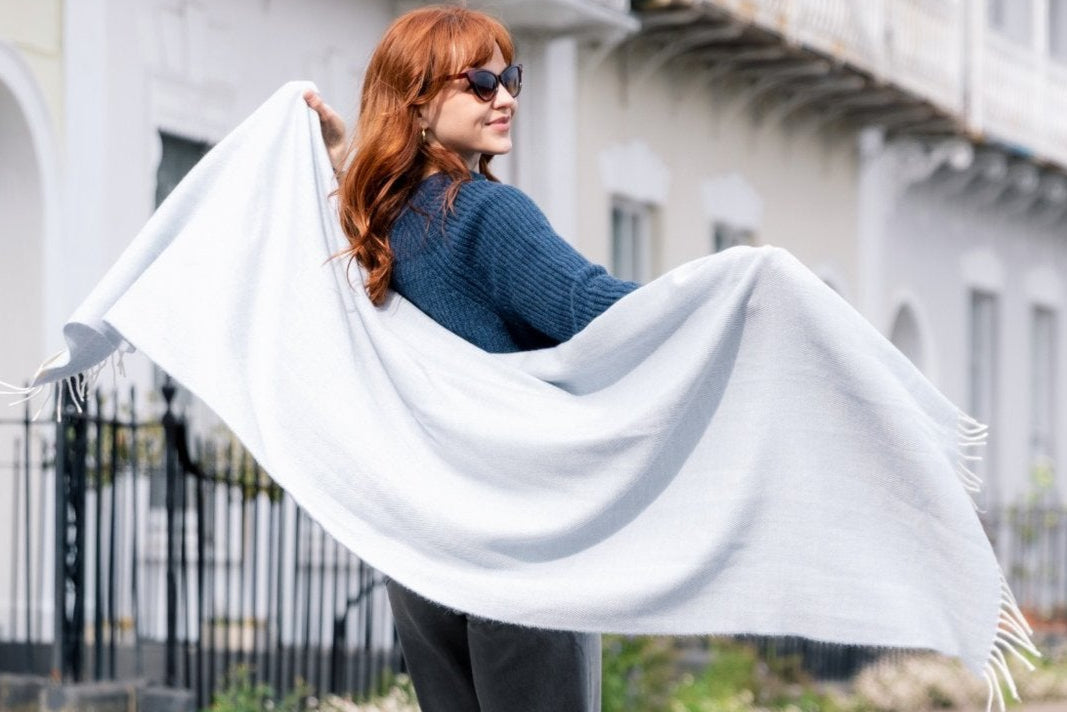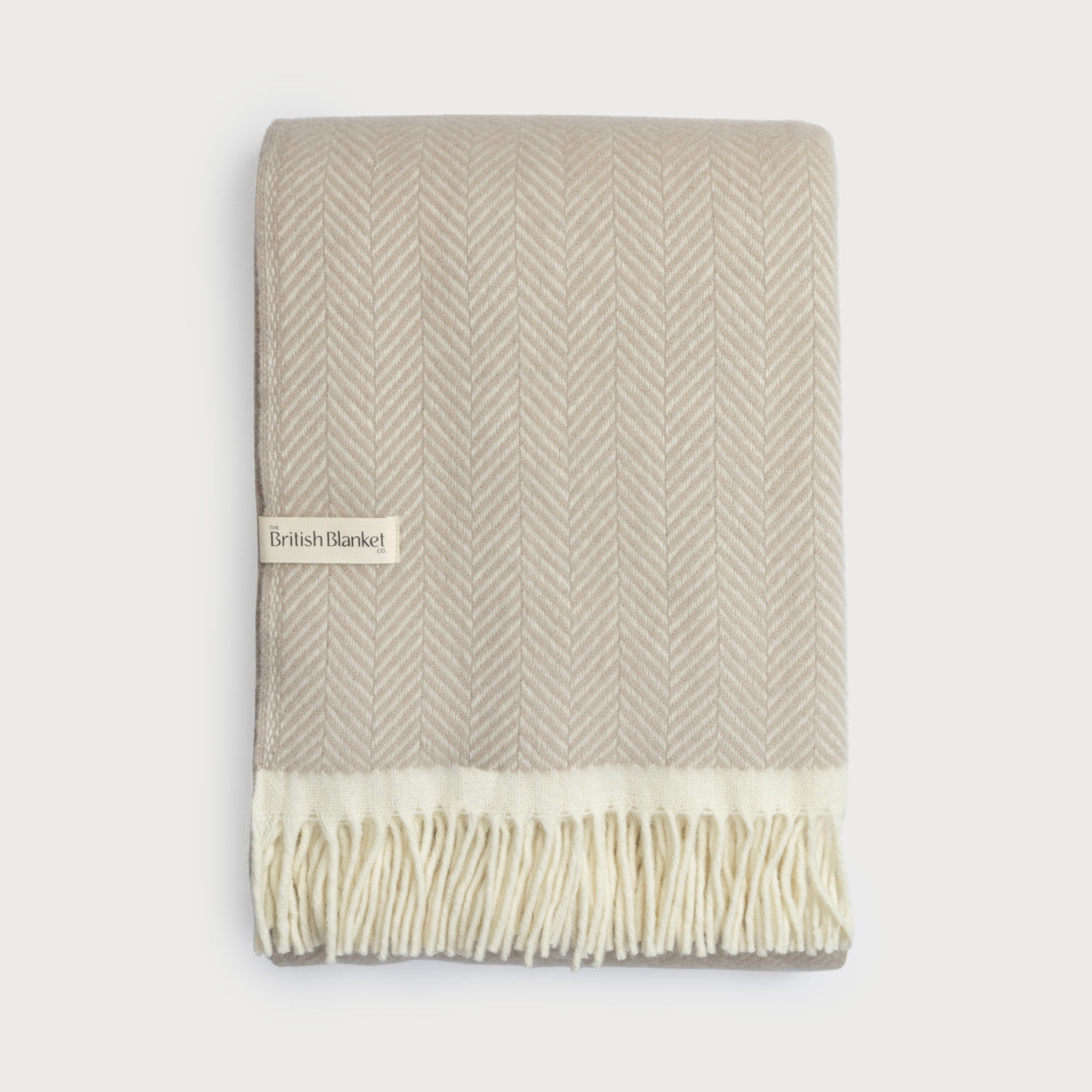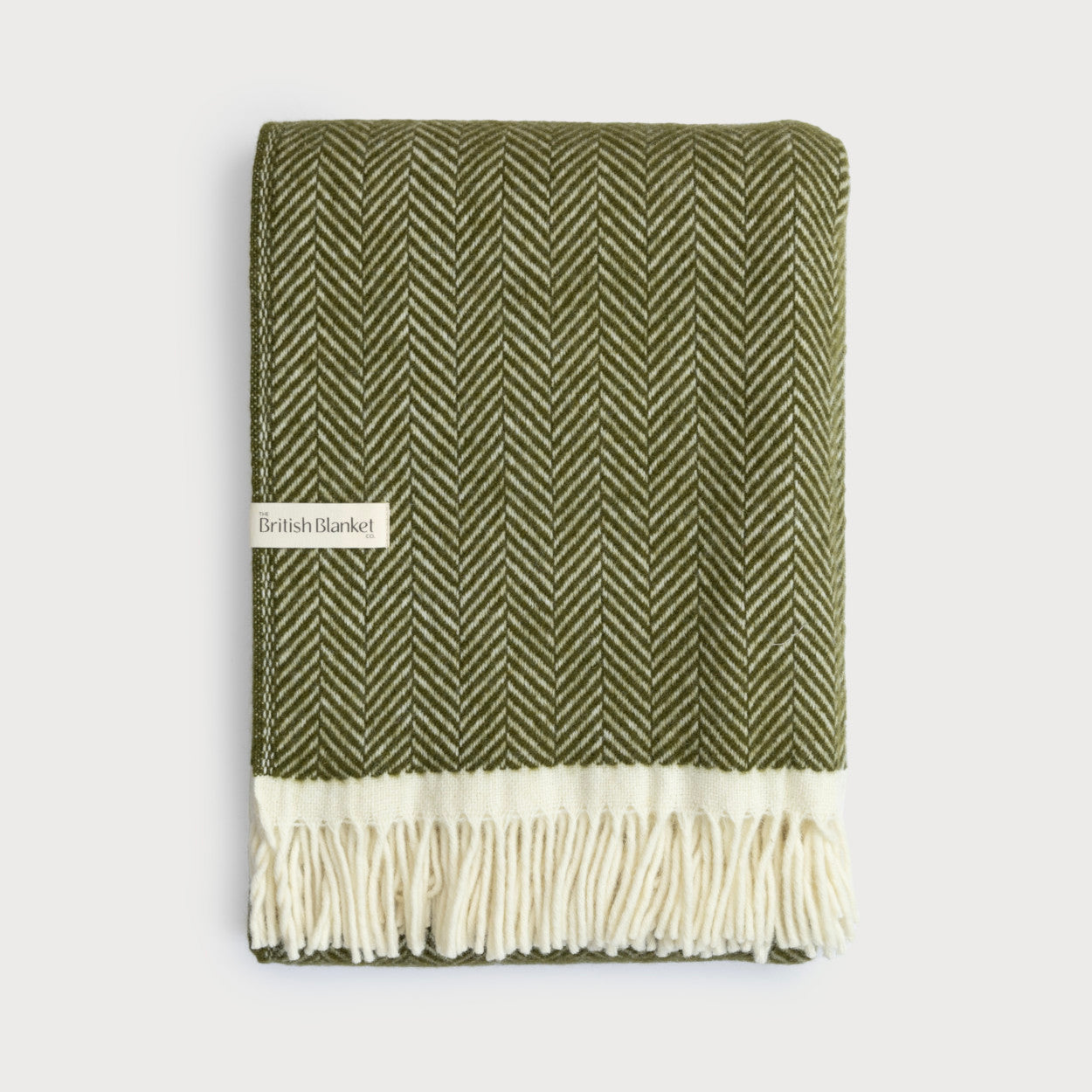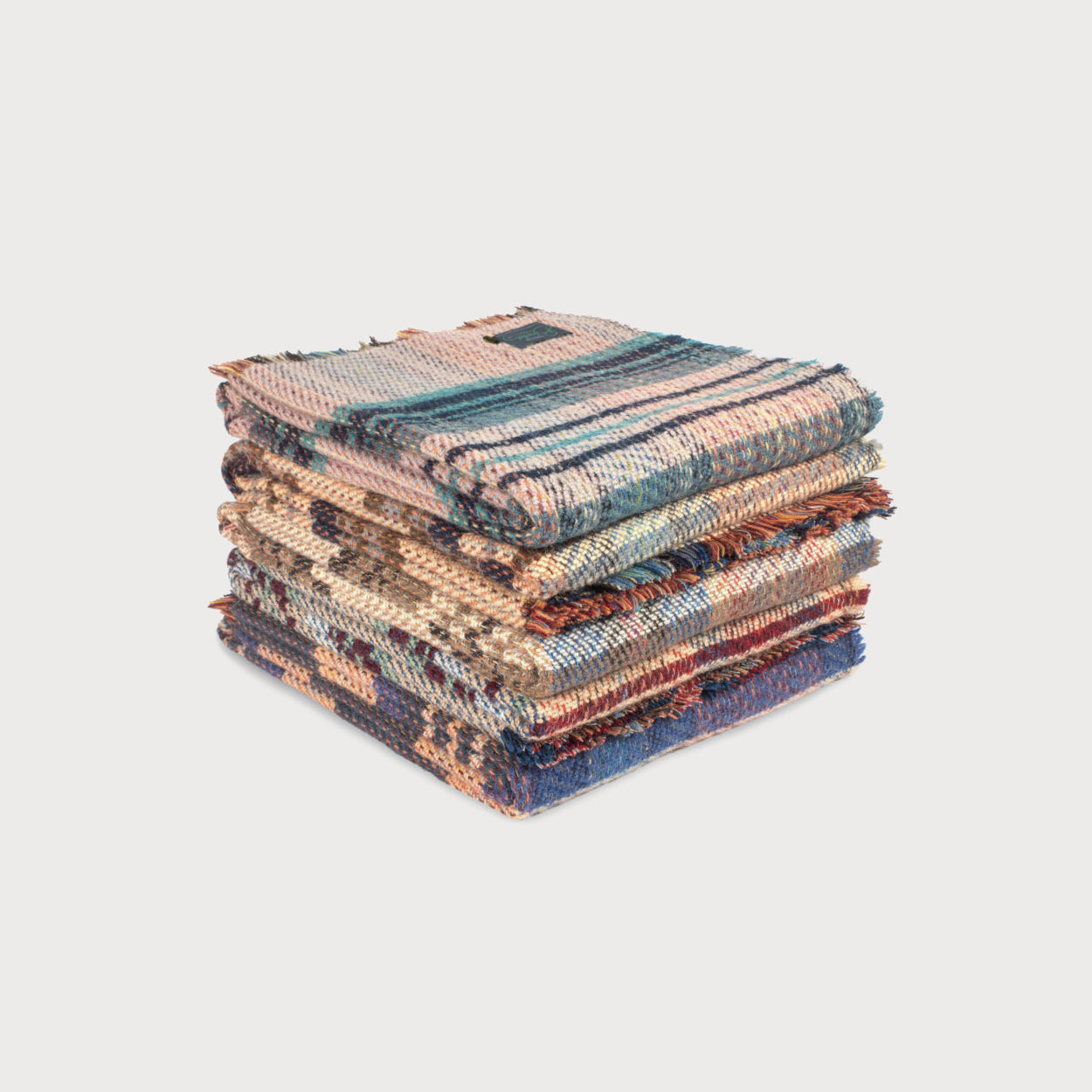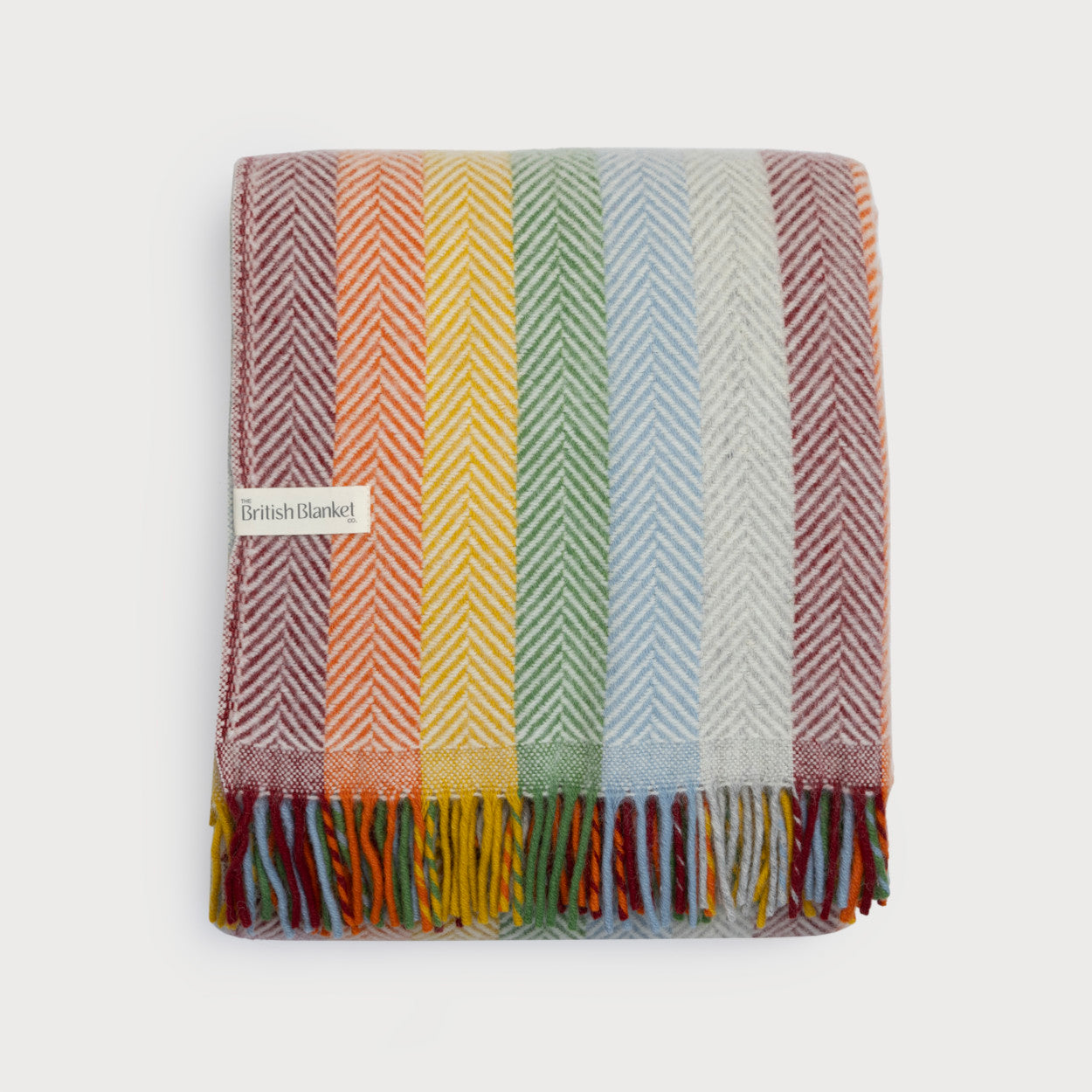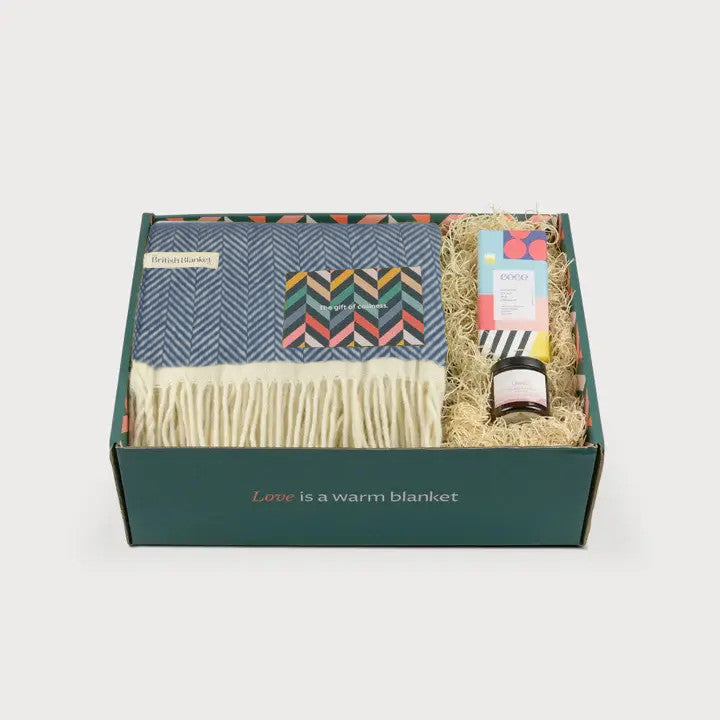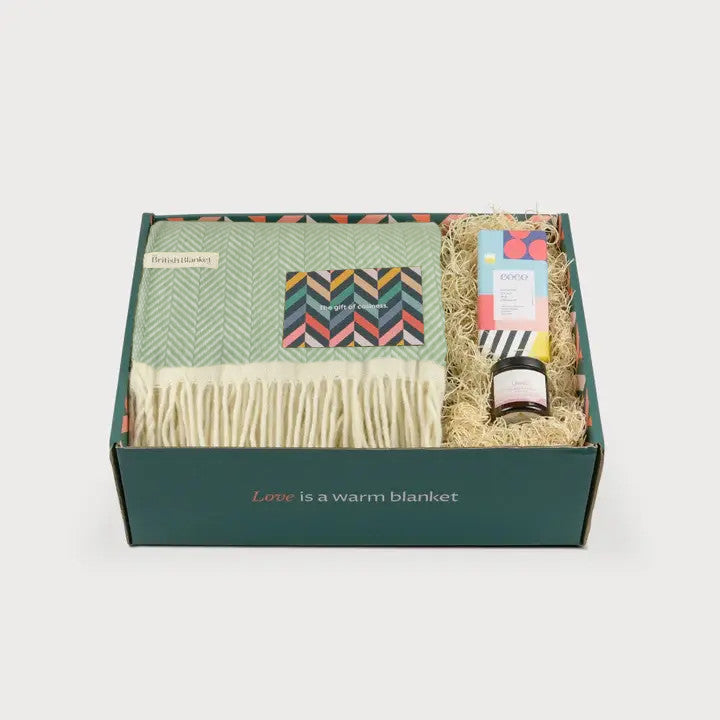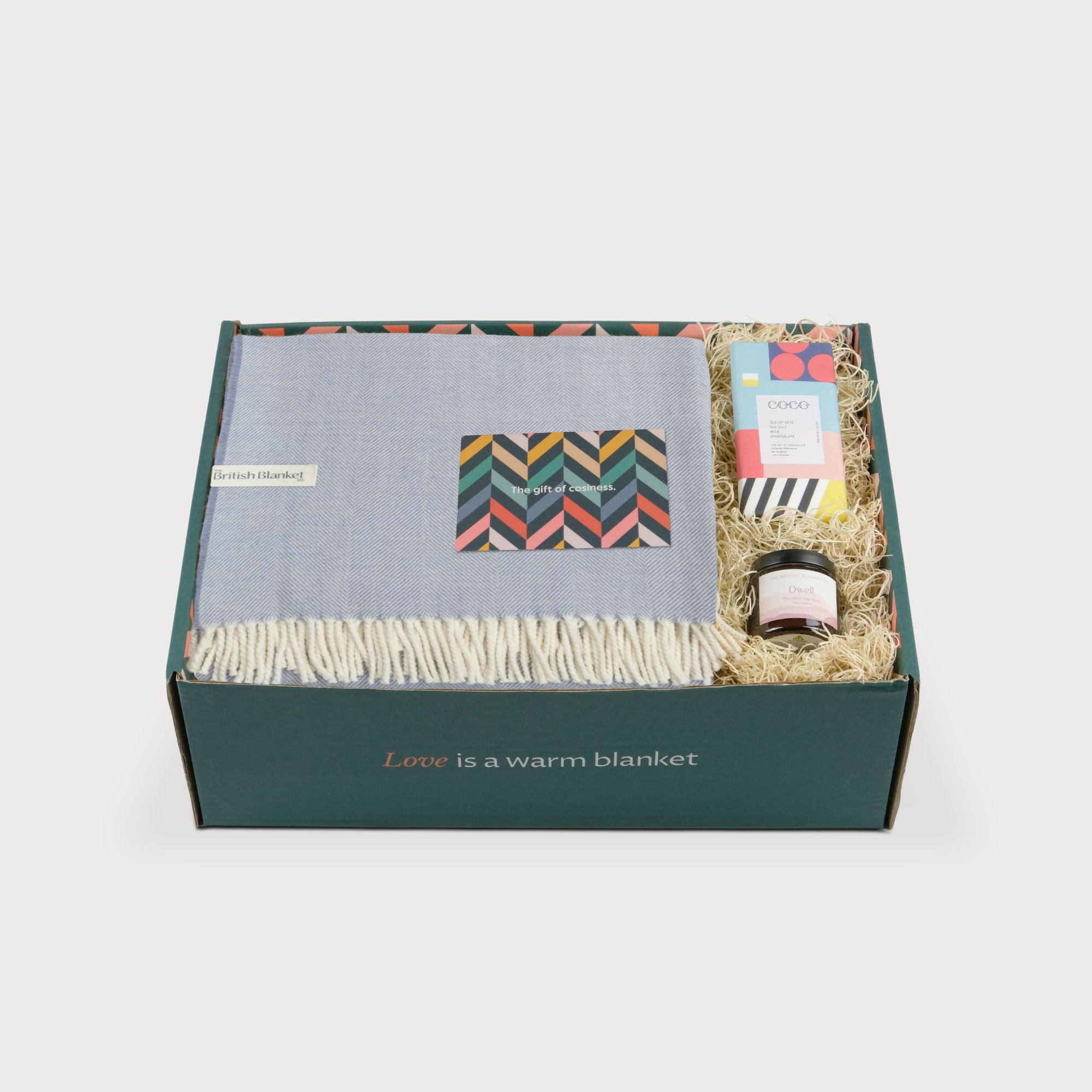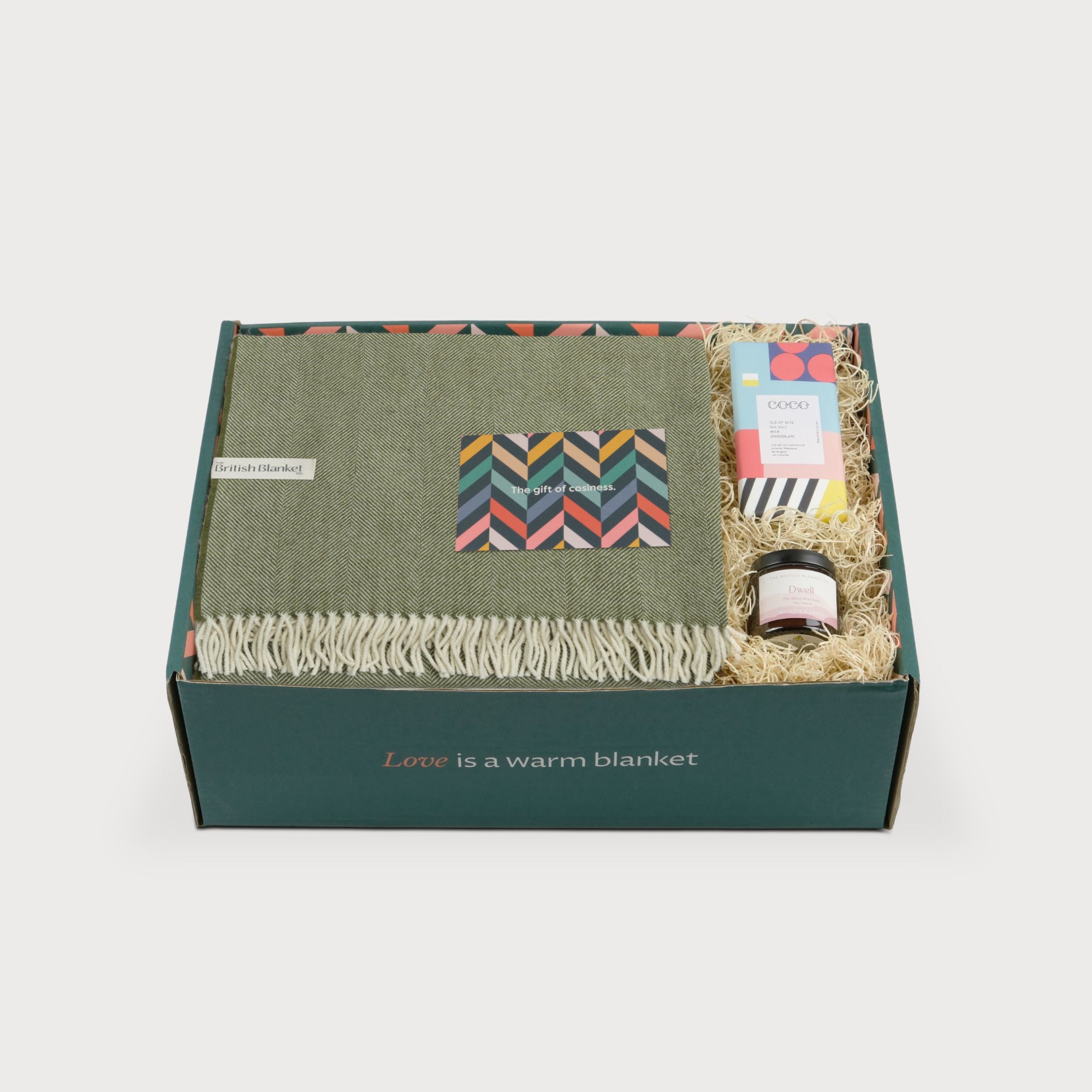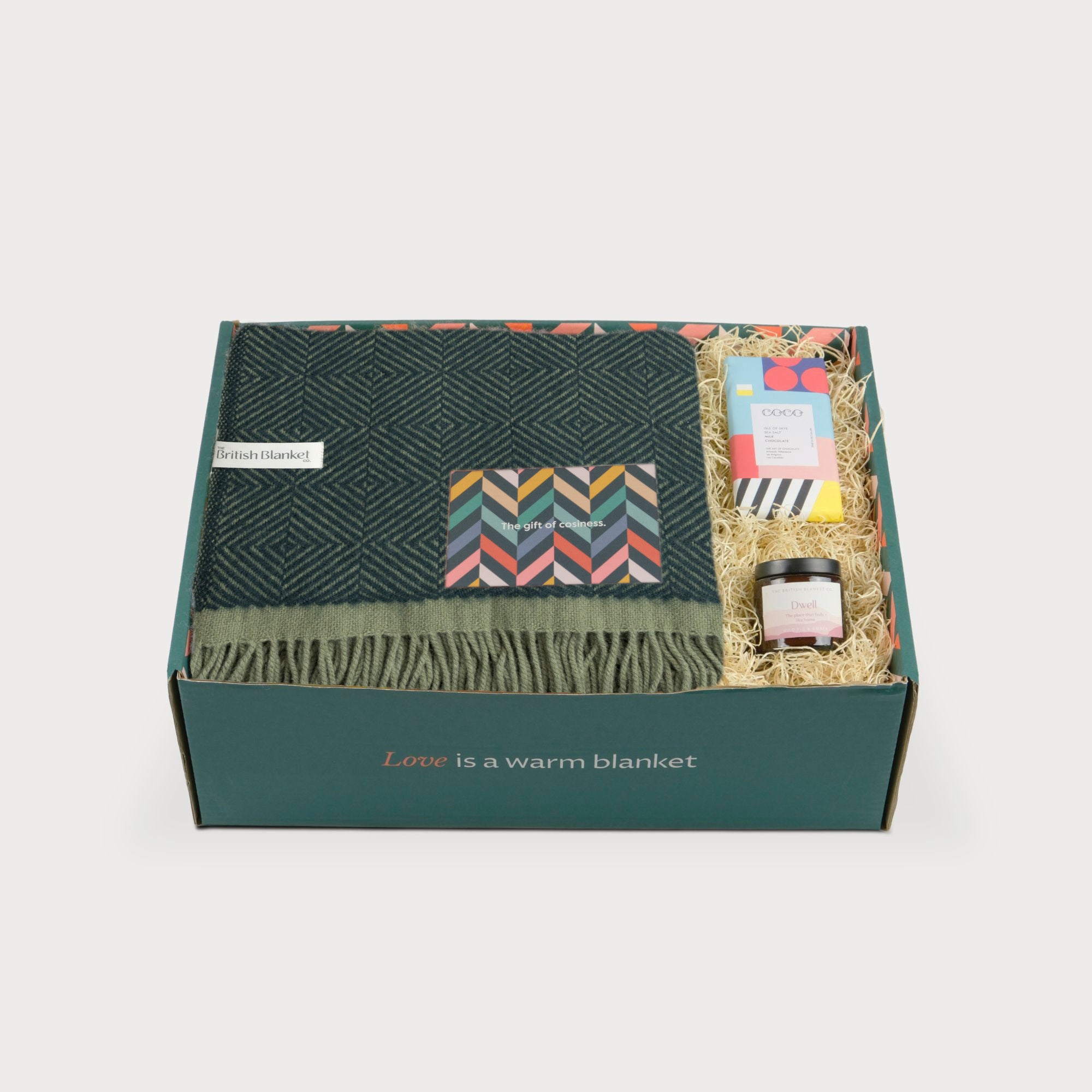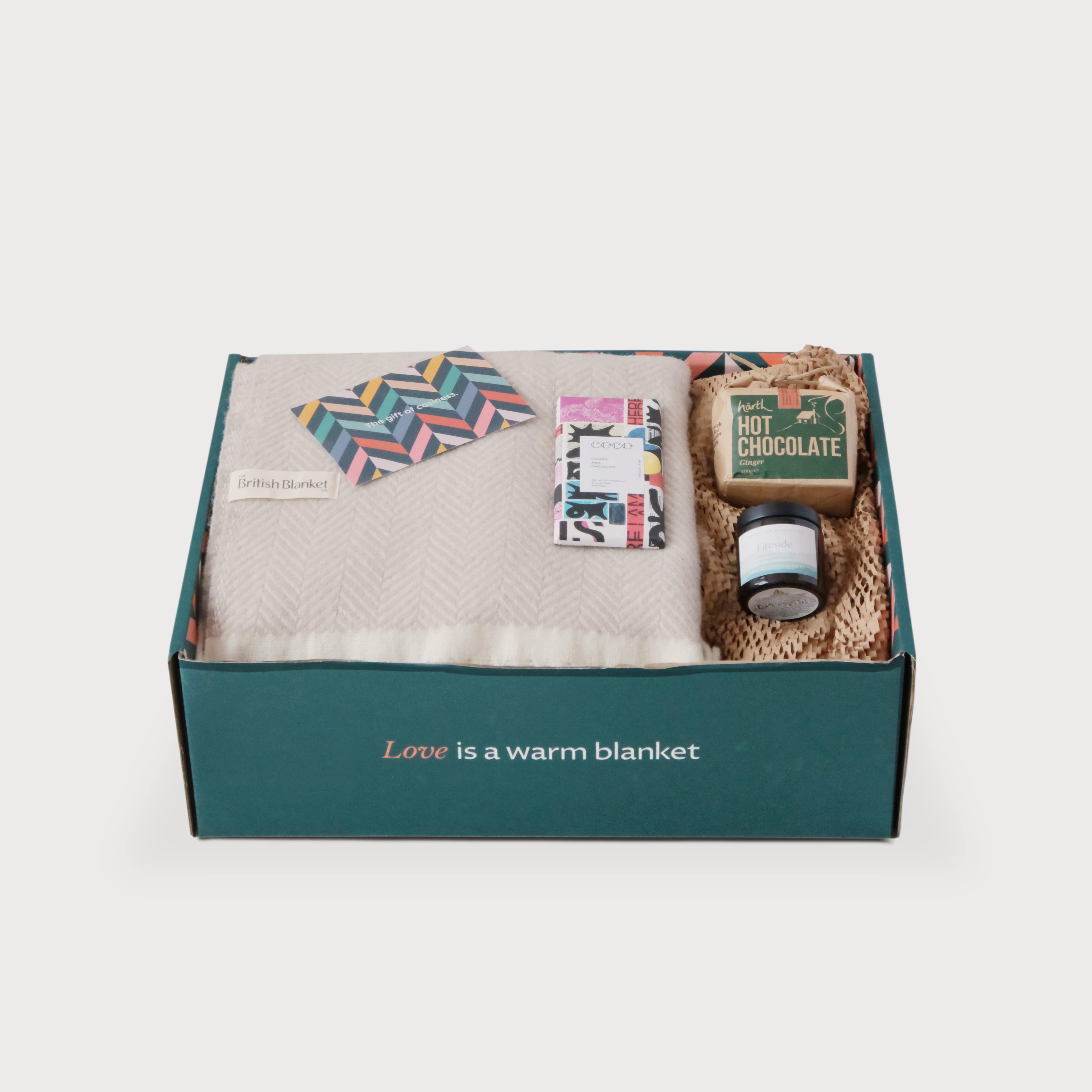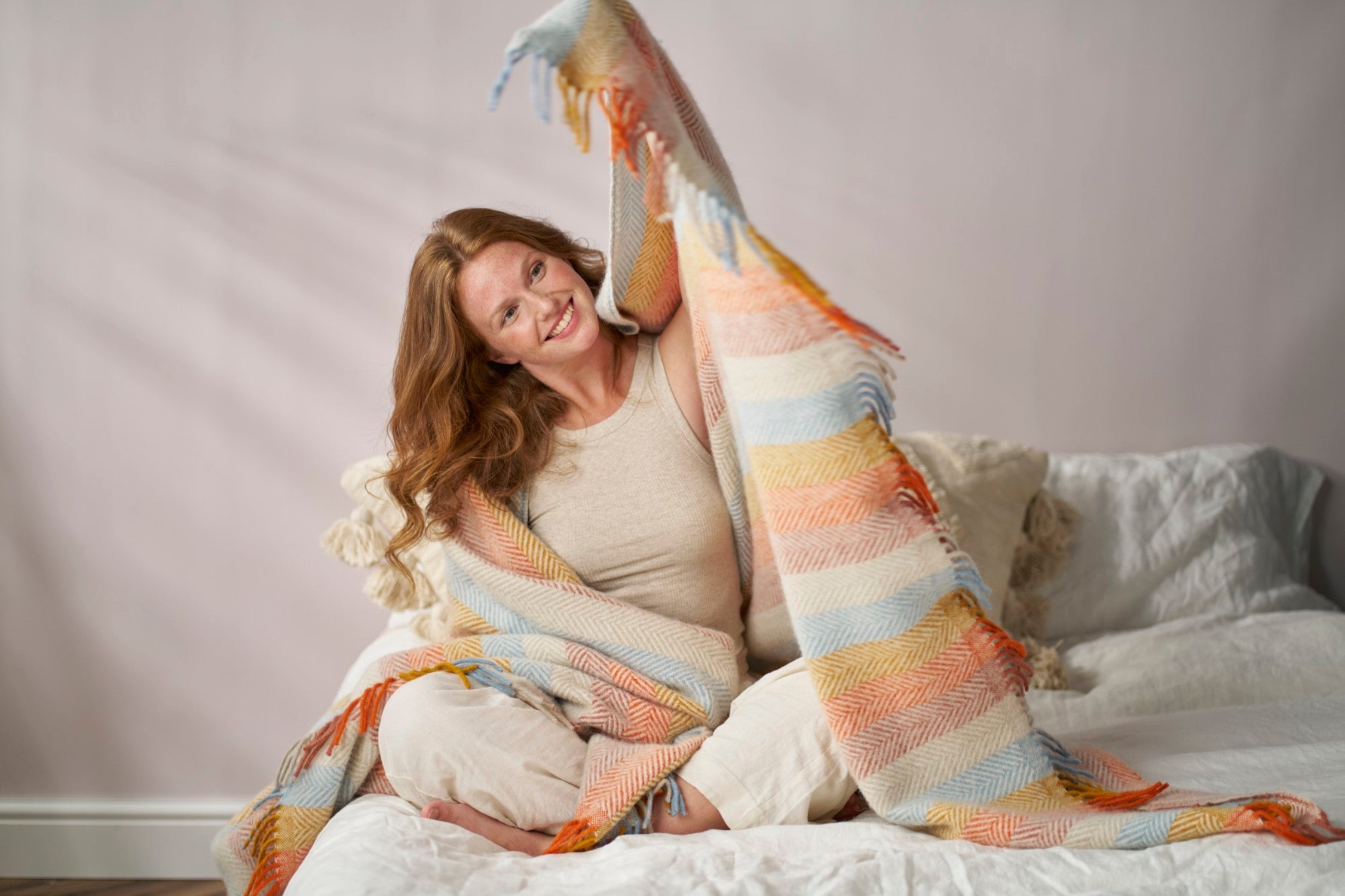Which wool blankets are warmest and softest?
Call us biased, but we think no room is complete without a wool blanket or two. From snuggling on the sofa watching Netflix, to staying warm in bed, nothing looks and feels better than a blanket made from cosy natural wool.
In this blog, we’ll answer two of the most common questions asked by people deciding which wool blanket is best for them:
- Which wool blankets are softest?
- Which wool blankets are warmest?
Plus, we’ll consider the pros and cons of natural wool blankets compared with synthetic materials.

This Merino Multicolour Check Blanket is woven from merino lambswool, making it one of the softest blankets in our range
Help! There are so many types of wool, what’s the difference?
If you’re looking to buy a wool blanket, understanding the different types of wool out there can be confusing. Here at The British Blanket Company, we specialise in natural fibre blankets made from pure wool and merino lambswool blankets, as well as brushed recycled cotton blankets. You might be tempted by blankets made from other natural fibres such as alpaca, mohair and cashmere. On top of that, you’ll also find synthetic fibre blankets and blankets made from recycled wool.
These are some of the main materials used for making blankets and their key properties (in no particular order):
Pure wool blankets (from sheep): Thick, textured, soft, easy to wash
Merino lambswool blankets (from merino sheep): Extra soft, light, delicate, breathable
Cotton blankets (virgin or recycled cotton): Easy care, soft and temperature regulating
Alpaca blankets (from alpacas): Fine, extra soft, smooth, delicate
Mohair blankets (from mohair goats): Fuzzy, lustrous, light, delicate
Cashmere blankets (from cashmere goats): Ultra soft, light, delicate, expensive
Synthetic blankets (plastic-based fibres): Easy to wash, durable, man-made, inexpensive
Recycled wool blankets (remnant yarns from industry, or re-spun used wool): Rougher, durable, often blended, inexpensive

Wool blankets are snug because the wool fibres trap warm air. That's why natural wool blankets are so cosy!
Above: Rainbow Stripe Wool Blanket from The British Blanket Company
Which wool blankets are warmest?
Wool is a great insulator so it’s naturally cosy. But which wool blankets are warmest?
Many people perceive pure wool blankets to be warmest, as they are thick, fluffy and feel substantial. If you’re looking for a blanket you can really snuggle up in, a pure wool blanket would be a good choice.
Merino wool blankets feel thinner and lighter, but they are still very warm due to the special properties of merino wool fibres. Merino wool fibres have a unique crimped structure that traps warm air. Although merino wool blankets are not as thick as pure wool blankets, they can be just as warm.
Both pure wool and merino lambswool blankets will keep you warm, so the choice comes down to whether you prefer a blanket that feels more chunky or more lightweight. This leads us nicely onto the question of which type of wool is softest.

Merino lambswool blankets are soft, fine and light, but still very warm. They have a smooth finish and an elegant drape.
Above: Merino Herringbone Blanket in Navy Blue from The British Blanket Company
Which wool blankets are softest?
Merino lambswool blankets tend to be softer than pure wool. The softest wool blankets are those made from the finest and longest fibres, which create the smoothest yarn.
Another factor to consider is how the blankets have been finished. Most wool blankets goes through a process called raising, where the surface of the wool blanket is brushed with rollers covered in tiny pins. This fluffs up the surface fibres to create a bouncier and fluffier blanket. Raising means our pure wool blankets feel thick and soft to the touch.

How are natural wool blankets better than synthetic materials?
Here at The British Blanket Company, we love the all-natural properties of wool blankets. We prefer natural fibres like wool to synthetic fibres because they are kinder to the environment. Synthetic blankets are essentially woven plastic, so it takes a lot of harmful chemicals to produce synthetic fabrics and they will never fully biodegrade. In contrast, a new wool fleece is grown naturally by sheep every year and wool actually adds beneficial nutrients to the soil when it breaks down. Find out more about why wool is environmentally friendly.
Wool is also naturally breathable, so you will not overheat under a wool blanket as you can sometimes find with synthetic fibre blankets. This makes wool blankets ideal for people who can get too hot at night.
In some situations, a synthetic blanket might be more practical than wool, especially if you have children or pets and need to wash your blanket frequently. Synthetic fabrics don’t shrink when exposed to heat, as wool can. If you are looking for the benefits of a natural wool blanket but may need to wash it often, The British Blanket Company’s pure wool throws can be machine washed on a cold setting. More delicate materials like merino lambswool, alpaca and cashmere will need to be dry cleaned. For more guidance on how to wash a wool blanket, head to our wool care guide.
Inspired to invest a soft and warm wool blanket? The British Blanket Company specialises in cosy pure wool and merino lambswool throws, all made in the UK and Ireland. Explore our extensive selection of colours and designs in our online shop.
